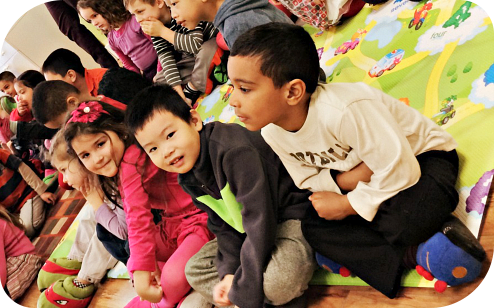Ears are a very crucial component in the development of a child’s language ability. In the early stages of pregnancy, during the first and second trimester, the inner ear connects with the brain’s neurones in order to process sound. Throughout the process, the minuscule bones of the middle ear (the part of the ear that senses the vibration of sound waves) form. At around the 16th week of pregnancy, it is likely that these structures are developed enough for the baby to being detecting limited noises, such as the gurgle of their mother’s stomach, or the air that moves in and out of her lungs. This shows how much an environment can affect how a baby learns a language. The more stimulation the baby gets, the more active their neurones become. It’s shown that by the 24th week, the baby in the womb turns their head in response to voices and noises. It is crucial to know what kind of environment in which you want your child to live.
The word “environment” derives from the French word “environ”, which means “surrounding”. This would include biotic factors such as human beings, plants, animals, etc. Children are affected by their interaction with the environment around them. They tend to imitate what they hear around them.
There are 5 areas children need to focus on in order to efficiently develop their language skills:
- Phonetics
- Vocabulary
- Grammar
- Discourse
- Pragmatism
Do you want your child to develop their language skills?
Keep in mind the following:
- The more frequent you interact with your child through oral communication, the more vocabulary they will gain.
- There is a lot gained by listening to them. It is very encouraging for the child and helps them gain confidence in using the language when you carefully listen to what they have to say, regardless of how far it is from perfect. They will be encouraged to continue to practice their speech.



